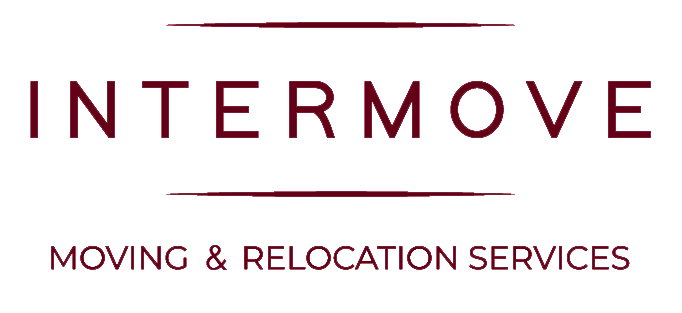Between dealing with jobs, and the hassles that come with our lives, people sometimes want to get away of all of that and move somewhere else. For those who have experienced an existential crisis, relationship loss or a tragedy, however, this desire can become overwhelming. In recent years, psychologists have begun researching the psychological and neurological effects of relocating, and the findings show that it can be a useful form of therapy for some people. Here are a few facts about relocation therapy and what benefits its provides.

Is relocation therapy different than moving?
In terms of actions, there is no physical difference between relocation therapy and moving to a new area. However, the purpose of relocation therapy is to put the mind at ease and move on from a loss in the family, a midlife crisis, relationship transformation or another life event that is difficult to process without significantly changing physical and energetic surroundings. Some researchers believe that people who move often do so less for practical reasons and more for the experience of starting afresh from a painful experience. Though the pain that you once felt will never be completely eliminated, this therapy will allow for you to not be constantly reminded of the sorrows of your past. Many people may move as part of a mind-full intention to create them self anew when they have reached a transition point in their life where relationships or jobs are transforming and there is an inner restlessness or calling to create something very different in their lives.

Why can relocation therapy be so effective?
There are two theories about why relocation therapy works so well for some people. First, there is a school of thought that moving is a way of avoiding patterns that may have caused stress in the past. According to this school of thought, moving is a way to develop new habits and avoid falling into old patterns of thought. This can work well for people who are ready to look within and become aware of their own internal belief patterns of thought that helped them with creating their old life circumstances. Once you become aware of how you self-sabotaged by past choices fueled by old thought patterns, you can mindfully transform your thoughts and emotions so that you can begin to create new beliefs to create a new environment, new life patterns, and new relationships.
You can either unwittingly create powerfully in your life in negative ways or you can mindfully create powerfully in wondrously abundant ways by your thought patterns, and choices. This has been discussed before in books by Dr.’s Latz and Ross as ‘The Bow and Arrow Theory of Creation’ which goes as follows: The bow represents your emotional intention (i.e., anger, resentment, fear, love, compassion). The strength of the emotional intention determines how powerfully you draw back your bow to send your thoughts out into the world to manifest them. For instance, if there is not much power behind the emotion, then the arrow will scarcely fly. If, on the other hand, there is great power behind the emotion (such as rage or fear), then the arrow will fly quickly and can create rapidly in your life. The arrow represents your thought, which directs the intention. The thought will direct how the intention will manifest in your life. It is important to notice that you cannot create for anyone else. You can draw back your own bow to create in your own life. If you draw your bow back with the intention of hurting others, you will only draw similar negative energy into your own life. When you understand the full magnitude of the power of your own creation and take responsibility for challenging old thought patterns, you can truly begin to create new environments that are more peaceful. If you do not understand the powerful ways in which you create situations and attract people into your life that allow drama and chaos, then you are likely to just recreate similar scenarios over and over again.
Others believe that relocation therapy is procuctive due to neurological reasons; humans evolved as nomads, and our ancestors would constantly move to new areas and this may somehow be encoded into us and into our neural pathways in our organism. According to this theory, relocation therapy taps into this latent generational pattern For this reason, a new scene provides us with a new outlook on our lives altogether. It allows us to start afresh and rediscover who we are completely.

Should I consider relocation therapy?
The question of whether relocation therapy is right for a particular person cannot be answered very easily. One might ask: “Am I wanting to relocate to distract from painful situations or chaos I have created or allowed in my life?” “Am I wanting to relocate to leave behind memories of loved ones I have lost?” “Am I wanting to relocate so that I can combine two households (in the case of a new marriage that blends two families) into a new household with its own new energetic space?” Those who have suffered a significant loss and who cannot seem to get past their grief may benefit from getting away from constant reminders of their lost . For them, relocation therapy might be the best way to move in the right direction. Those who are suffering from other mental or emotional difficulties may want to consider if moving to a new area could provide additional benefits of being nearer or further from either helpful or chaotic family/friends; or if such a move would not be helpful because the issue is within one’s own internal chatter and would be moving to the new location as well unless it is properly dealt with. The combined effect of moving to a better community in terms of allowing better educational, social or cultural opportunities, and reaping the benefits of relocation therapy may make it the best choice for them.
For instance, moving into an area such as NY, USA,, would allow you to focus on a new environment and great variety of opportunites The “Big Apple” would provide you with constant distraction and constant social and cultural activities to create energetic opportunities that are different from situation you were in before.



